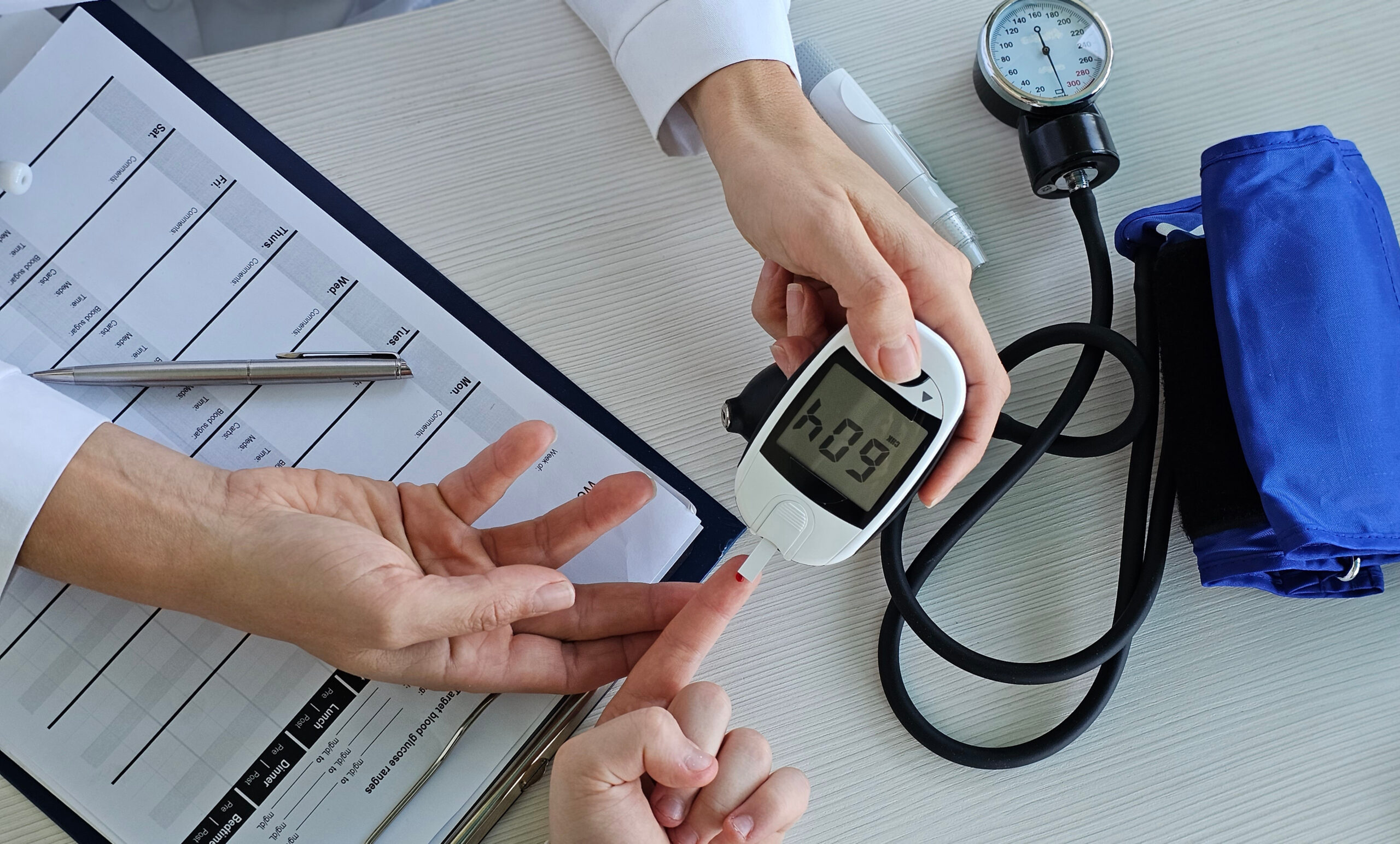According to the Center for Disease Control and Prevention (CDC), 38.4 million people of all ages in the U.S. had diabetes in 2021, which is 11.6% of the U.S. population. This includes an estimate of more than 8.5 million people who have diabetes but have not been diagnosed. Some diabetes symptoms are subtle, so many people are unaware that they have diabetes until it is discovered on routine lab tests, or symptoms worsen.
What Is Diabetes?
When you have diabetes, your pancreas doesn’t produce enough insulin, or sometimes none at all, or your body isn’t affected by insulin normally. This insulin deficiency causes glucose to build up in your bloodstream, which leads to high blood sugar levels, known as hyperglycemia. This can cause more health issues over time, including heart disease, nerve damage, and eye problems.
Diabetes comes in several forms, but the two most common are Diabetes Type 1 and 2. Both types are usually manageable.
Quiet Signs of Diabetes
Many symptoms of diabetes in the early stages are subtle and easily ignored, or assumed to have other causes. These include:
- Frequent urination: This is caused by your kidneys working to remove excess sugar from your blood.
- Excessive thirst.
- Excessive hunger.
- Fatigue or weakness: When your kidneys have to work too hard, it can make you feel tired and weak.
- Tingling or numbness, particularly in your feet: Excess sugar can damage nerve endings.
- Blurred vision: Excess sugar can cause swelling in your eyes.
- Itchiness: Excess sugar affects your circulation, and can also cause your skin to dry out, which makes your skin feel itchy.
- Slow healing wounds or skin infections: These are caused by poor circulation.
- Moodiness: Caused by unstable blood sugar.
- Urinary tract infections and yeast infections: Sugar in your urine increases bacteria in the area.
If you have these symptoms, you should see your doctor immediately. They can run different types of blood tests to check your blood sugar and make a formal diabetes diagnosis.
Causes of Diabetes
The excess glucose in the bloodstream that causes diabetes has several different causes depending on the type of diabetes.
Insulin Resistance
Insulin resistance means that cells in your liver, fat, and muscles don’t react properly to insulin. This is generally what leads to Type 2 diabetes, and can be caused by obesity, an unhealthy diet, low levels of physical activity, genetics, hormonal imbalances, or certain medications.
Autoimmune Disease
When you have an autoimmune disease, the immune system attacks the cells in the pancreas that produce insulin. This is often the cause of Type 1 diabetes.
Hormonal Imbalances
Hormonal imbalances usually occur during pregnancy, and the placenta releases hormones that lead to insulin resistance. If the pancreas cannot produce enough insulin to compensate for the insulin resistance, gestational diabetes occurs. A few other hormone-related conditions can also cause Type 2 diabetes.
Pancreatic Damage
Injury, surgery, or certain medical conditions can cause damage to the pancreas and impact insulin production, causing diabetes.
Genetic Mutations
Specific genetic mutations can cause a few different types of diabetes.
Treatment for Diabetes
Diabetes is managed in several ways, depending on the type of diabetes and the individual’s overall health.
Blood sugar monitoring: You need to keep track of your blood sugar level in order to manage it. Ways to monitor blood sugar include a glucose meter and finger stick, or a continuous glucose monitor.
Oral medications: Medications that help to manage blood sugar levels are commonly prescribed to people with Type 2 diabetes.
Insulin injections: Several types of synthetic insulin can be injected to control diabetes.
Diet: A healthy diet and managing your intake of carbohydrates are important in diabetes management. Your doctor can help you to plan a balanced diet that’s right for you.
Exercise: Exercise can help to reduce insulin resistance.
It’s also crucial to control weight, blood pressure, and cholesterol.
Potential Complications of Diabetes
Complications of diabetes can be acute requiring immediate medical attention, or you can develop long-term complications.
Acute complications include:
Hyperosmolar hyperglycemic state: Blood sugar levels become extremely high leading to dehydration and confusion. This generally occurs with Type 2 diabetes.
Diabetes-related ketoacidosis (DKA): DKA occurs when the body doesn’t have enough insulin, therefore glucose can’t be used for energy. Fat breaks down instead, but this eventually leads to the release of ketones, which cause acidic blood, leading to labored breathing, vomiting, and loss of consciousness. This occurs mainly with Type 1 diabetes.
Hypoglycemia (severely low blood sugar): When the blood sugar drops too low, it can cause blurred vision or double vision, as well as clumsiness, disorientation, or seizures. People who inject insulin are at the highest risk of hypoglycemia.
When damage to the body occurs from diabetes over the long term, it can lead to other complications including:
- Coronary artery disease
- Heart attack
- Atherosclerosis
- Stroke
- Nerve damage
- Nephropathy which can lead to kidney failure
- Foot conditions
- Retinopathy which can cause blindness
- Amputations
- Skin infections
- Gastroparesis
- Hearing loss
- Gum disease
- Sexual dysfunction
Diabetes Prevention
While some types of diabetes can’t be prevented, Type 2 diabetes in particular may be preventable with a healthy diet, exercise, and keeping your weight at a healthy level. You should also get enough sleep and try to reduce your stress levels.
You should also avoid alcohol and smoking. Alcohol can lead to issues with the pancreas such as inflammation, and smoking can increase blood sugar levels and lead to insulin resistance.
In Closing
Diabetes affects many people. If you have symptoms of diabetes, do not hesitate to see your doctor. While a diabetes diagnosis can be frightening, it is manageable and treatable and doesn’t have to reduce your quality of life.
The providers at Health Service Alliance can test you for diabetes and offer a treatment plan that is personalized for you. Give us a call to learn more.




